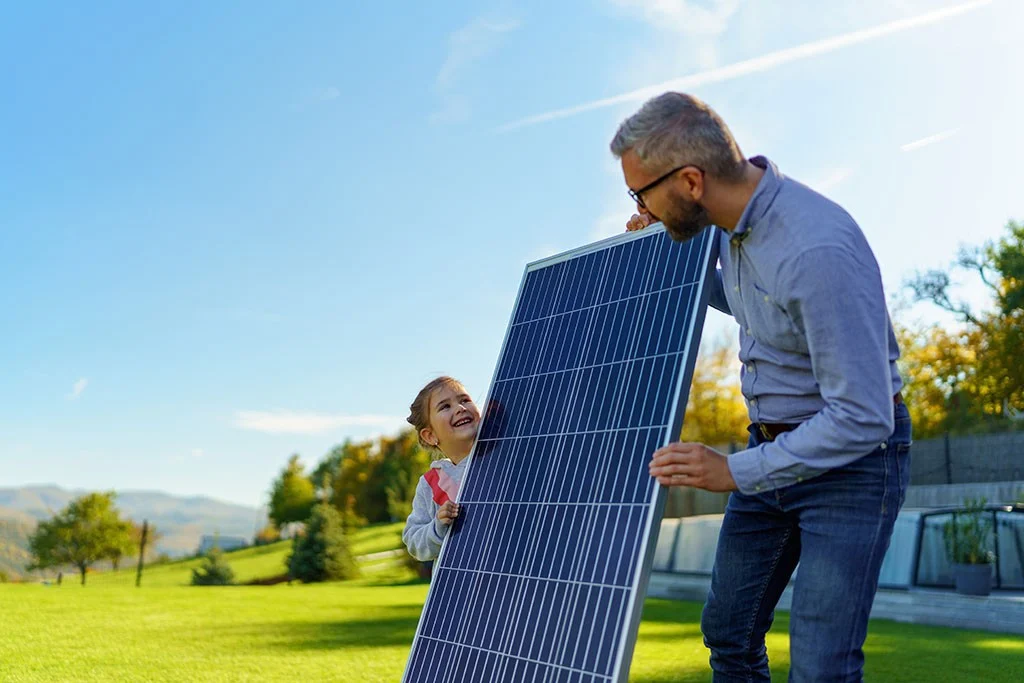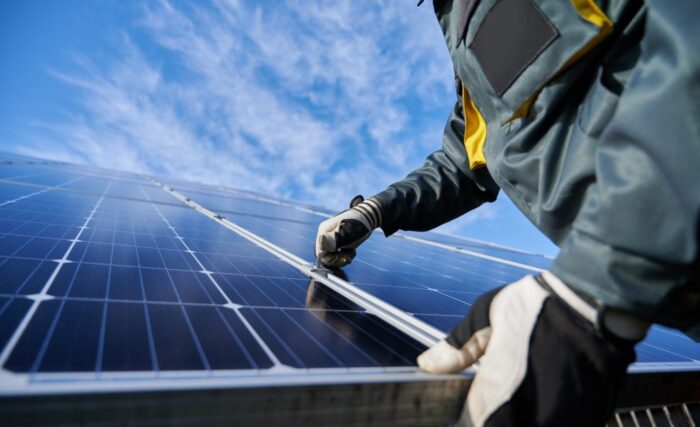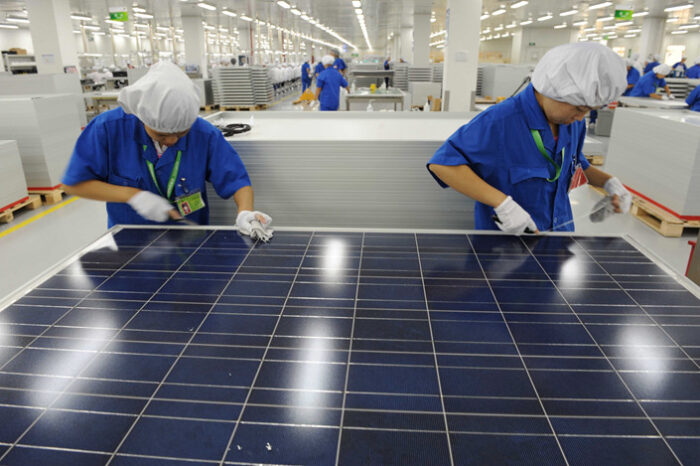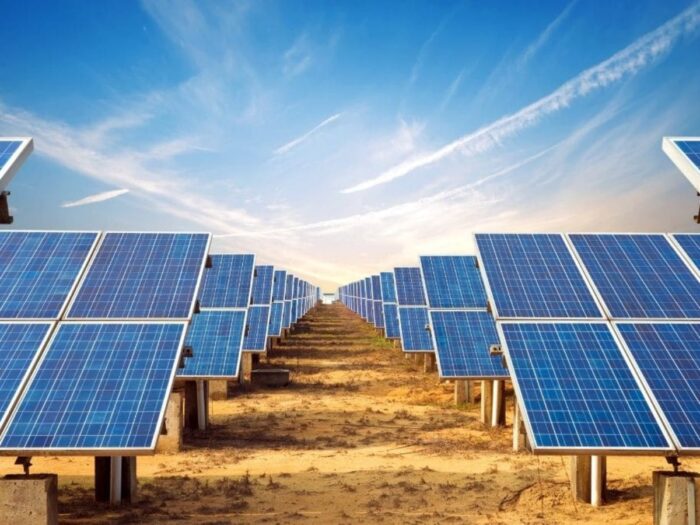
The last few years have seen a significant rise in what we class as environmentally conscious living. More people than ever before are looking for ways to reduce their carbon footprint and help the environment. One of the biggest trends in sustainable living has been the dramatic increase in people using residential solar panels. Installations of home systems have skyrocketed in recent years, both globally and in the United States.
According to the good folk at Vivint Solar, this rise in green energy adoption is attributed to several factors, including decreasing costs, supportive government policies, increased public awareness, and an urge for energy independence.
The growth of home solar panels is intricately tied to the larger movement toward eco-friendly lifestyles. Using the sun’s rays to generate power is just one aspect of sustainable living. It goes hand-in-hand with other earth-friendly practices like home weatherization, smart water usage, green transportation, and waste reduction.
There are many homeowners that think installing this system is one of the most impactful steps they can take to help the planet. When paired with other sustainable choices, residential solar paves the way for truly eco-friendly homes.

How Do Solar Panels Work?
To understand the appeal of home solar panels systems, it helps to first understand how they work. These panels comprise many individual cells, themselves constructed from silicon semiconductors. When sunlight hits these cells, it knocks electrons loose from their atoms. These free electrons then flow from the solar cell through wires as direct electrical current (DC).
This DC power from the panels flows to an inverter, which converts it into alternating current (AC) for household use. The inverter is connected to the central electrical panel of the home, allowing solar energy to power lights, appliances, electronics and anything else that traditionally runs on AC power.
Any excess electricity that isn’t immediately used will flow back through the electric meter into the grid. This usually results in a credit that offsets electricity drawn from the grid after the sun goes down.
Reduction in Manufacturing Costs
One of the biggest drivers leading to increased solar adoption is the plummeting cost of these systems. Over the last decade, the average price of residential systems in the United States has dropped over 60%. There are a few key reasons for these dramatic price reductions. Manufacturing costs have decreased significantly thanks to economies of scale.
Chinese solar panel makers, in particular, have ramped up mass production which has brought prices down. In addition, steady advancements have increased the efficiency of panels, meaning homeowners can now get more wattage for less money.

The Economic Benefits of Going Solar
For many homeowners, the decision to add solar panels hinges on costs and returns on investment. Thankfully, the financial benefits of residential green energy systems are significant. Factoring in federal tax credits and state/local incentives, most solar panel systems will pay for themselves within 5-7 years.
Once the system is paid off, homeowners will enjoy 20+ more years of free electricity generation. This results in thousands of dollars in energy savings over the 25-30 year lifespan of most panels.
In addition to lowering or even eliminating monthly electric bills, going solar can increase a home’s property value. There are also opportunities to make money for excess electricity you make and fed back into the grid. Areas with net metering allow homes with panels to get full retail credit on their utility bills for any surplus power produced.
In states or cities with community solar programs, residents can earn income for sharing their excess electricity. Yet another economic benefit is protection against rising energy costs, as solar panels lock in electricity at fixed rates for decades.
The Environmental Benefits of Solar Energy
While economics are a major motivation for many homeowners, environmental concerns are an even bigger reason to go solar. Generating power from the sun results in cleaner air and lower carbon emissions compared to fossil fuel-generated electricity. Solar energy systems produce zero greenhouse gases and other pollutants.
Based on averages for the U.S. grid, each 5 kilowatt residential solar panel system can prevent over half a million pounds of carbon emissions over 25 years. This is equivalent to planting over 90 acres of trees or taking more than 10 cars off the road permanently.
In addition to the carbon reduction benefits, solar power also helps conserve finite natural resources and improves public health through reduced air pollution. Widespread adoption of home solar energy, combined with utility-scale solar farms, can also minimize the need for new power plants and transmission line infrastructure.
On a broader level, green power enhances energy security by decentralizing electricity generation and providing a domestic source of renewable energy that is not vulnerable to geopolitical tensions.

The Decreasing Reliance on Power Grids
One obvious effect of the growth in residential solar energy is that homeowners are relying less on traditional electrical grids for their power needs. With solar panels and battery storage, some homes are now nearly 100% self-sufficient when it comes to electricity. This transition away from centralized power distribution has some very important implications.
For one thing, it provides greater energy security and resilience for homeowners in the face of power outages from severe weather events or technical failures. With solar energy and batteries, homes are able to keep critical loads running indefinitely without any need for diesel generators or other backup sources.
From a financial perspective, grid defection will put increasing pressure on utility companies and electric service providers in the long run. If a sizable portion of homes become self-sufficient through solar energy, utilities will lose a significant chunk of sales. This may necessitate fundamental changes in their business models and rate structures.
Conclusion
For homeowners seeking to shrink their environmental footprint, installing solar panels is arguably one of the most effective actions they can take. When paired with other sustainable practices, residential solar power brings us one step closer to responsible living in harmony with the planet.
















